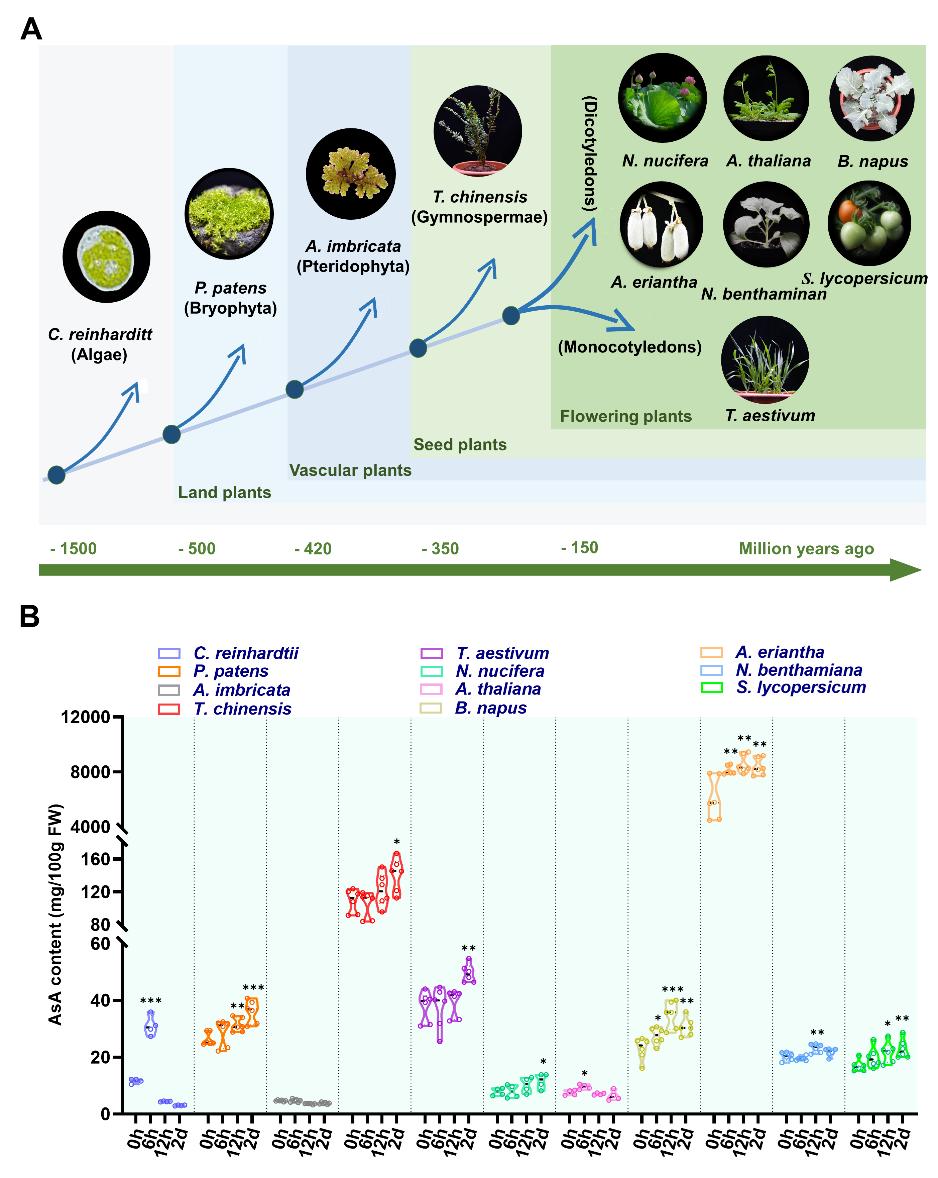Name:ZHONG Caihong LI Daiwei
Tell:
Email:zhongch@wbgcas.cn lidawei@wbgcas.cn
Organization:Wuhan Botanical Garden
AcePosF21 Elicits Vitamin C Synthesis to Reduce Cold Stress Damage in Kiwifruit
2023-03-22
Cold is a damaging abiotic stress that triggers morphological, physiological, and biochemical changes in plants. L-ascorbic acid (AsA, vitamin C) is one of the universal non-enzymatic antioxidants having a substantial reactive oxygen species (ROS) scavenging potential and affecting many of the fundamental functions in plants. Understanding the cold tolerance mechanisms and molecular regulation of AsA metabolism and ROS scavenging would benefit the develop of cold-resistant plants.
Supervised by Prof. ZHONG Caihong and Prof. LI Dawei from Wuhan Botanical Garden, research assistant LIU Xiaoying revealed a regulatory network that alleviated cold stress damage by inducing AsA synthesis in kiwifruit.
This research shows that AsA accumulation in response to cold stress is universally conserved across the plant kingdom and occurs in multiple tissue types. They identified a basic leucine zipper domain transcription factor of kiwifruit, namely AcePosF21, which interacts with MYB102 to promote the synthesis of AsA, providing evidence that AsA endows plants with reduce oxidative damage during cold stress.
The overexpression of AcePosF21 significantly promotes GDP-L-galactose phosphorylase 3 (AceGGP3) expression, which in turn increases AsA accumulation and removes excess ROS. On the contrary, (VIGS) or CRISPR/Cas9-mediated editing of AcePosF21 decreases AsA synthesis and increases the generation of ROS in kiwifruit under cold stress.
In conclusion, this study demonstrates that AcePosF21 mediates the AceGGP3-AsA synthesis in kiwifruit and acts as a positive regulator in cold stress. A working model has been proposed to explain how AcePosF21 functions to alleviate ROS damage caused by cold stress. It enlightens the breeding of kiwifruit with higher AsA concentration and stronger cold resistance.
Results have been published in the Plant Physiology entitled “Kiwifruit bZIP transcription factorAcePosF21elicits ascorbic acid biosynthesis during cold stress”.
This research was financially supported by the Strategic Priority Research Program of the Chinese Academy of Sciences (CAS), Foundation of Hubei Hongshan Laboratory, the National Key R&D Program of China, Youth Innovation Promotion Association, CAS and National Crop Phenomics Research (Shennong) Facility Project. (Published: 24 February 2023)

AsA concentration changes in plants of different evolutionary status under cold stress (Image by LIU Xiaoying)